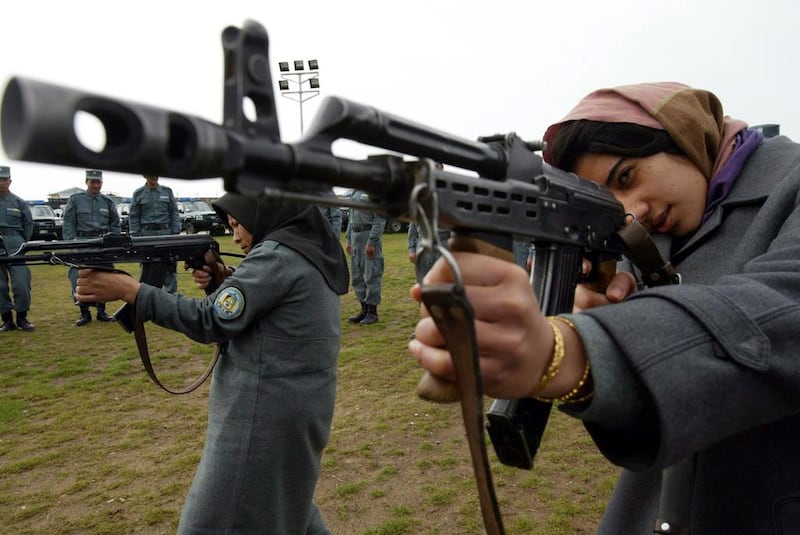Afghanistan's police force aims to develop new methods as international forces prepare to withdraw from the country, says Masood A Azizi, deputy minister for strategy and policy at the Afghan interior ministry. Follow him on Twitter: @MasoodAAzizi
Our main aim is to increase our transparency and transform the police from a counterinsurgency force to doing more community policing. We have also developed strategic plans for two years, five years, and 10 years.
We also aim to increase the number of female police officers and provide more facilities to these officers. A female police training facility has opened in Kabul and will eventually branch out to other provinces. This will increase the overall number of female police officers.
We have a commitment to increase the number of female police officers to 10,000 over the next five years. Now, there are under 2,000.
We are trying to make the culture see that being a police officer is a prestigious position.
This year, I can claim to be creating the budgets for the interior ministry by myself, along with my team, and some advice from the international community.
We want to change how money is managed. Instead of demand-based budgets, we want to create a system that emphasises a needs-based budget. If we can do this, it will be a great achievement.
In a traditional demand-based budget, for example, last year an executive takes US$1 million [Dh3.67m]. Then, this year, he wants $1.1m.
There was no process that validated this increase.
Now, we aim to justify every increase in funding. If there is a request to increase funding, we will ask why more money is needed.
It might be challenging to change the traditional way that police work. How can we do it when they are always asking for more machine guns and heavy weapons? We’ll say: ‘Excuse me, our vision is more community policing and implementing reforms, why do you want these things?’
This will be a process of additional validation.
We will tell them to submit a wish list for what they need, but what they ask for should be aligned with the strategic vision. Then from that we will make a list of what is the highest priority for this year. Then, what can be postponed to the second or third year.
We would like to increase transparency, which will increase the benefits for the police officers as well as for the government and donors by replacing trusted agents with payments through the electronic banking system.
Right now, in some areas, we are still using the system of trusted agent, someone we give salaries to pay the police officers. We are trying to get away from that and pay all the police officers through the bank.
We have to change our strategy: we can decrease the quantity of police officers, but increase the quality and capacity. A job that is being done by 10 we can do by seven.
While there is an active insurgency in Afghanistan, I am trying to lobby for a more strategic perspective to improve policies at the ministry. By improving these policies, by creating a more professional police force and technical experts, we can improve our capacity.
We have to do everything we can to get public support.
I can call this a war of propaganda in Afghanistan. The insurgents use propaganda to manipulate the people. The interior ministry also needs to communicate more effectively. We need to be responsive to the people’s needs.
That’s why we need to professionalise the police force and also educate our staff about these goals and changes. That is true capacity-building and my vision for the interior ministry.
The Afghan government of tomorrow will have fewer resources coming from the international community. We need to become independent and increase our numbers and capacity. By increasing transparency and prosperity we can increase the foreign investment in Afghanistan and the general income of the Afghan government so they can pay their forces. Hopefully, the situation will improve so we can use less police officers for counterinsurgency, which is not their job.
We are very thankful for the help of the international community. Yet, we realise that they won’t be there forever.
foreign.desk@thenational.ae
Read more Voices on Afghanistan





